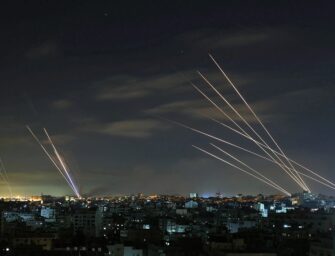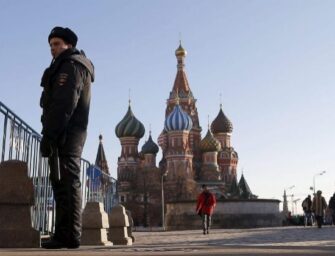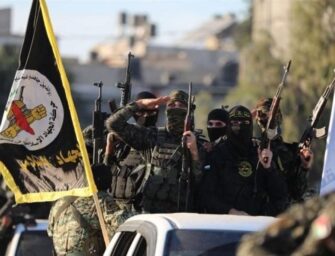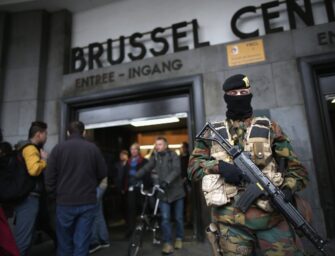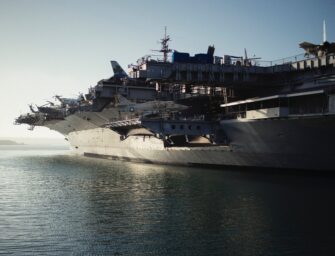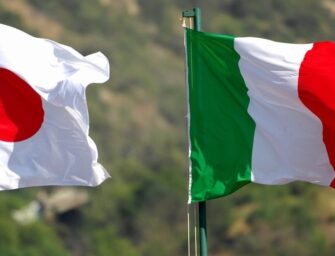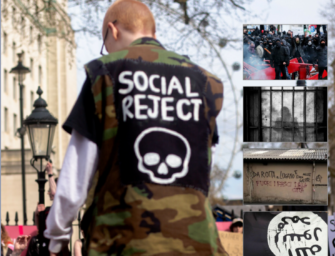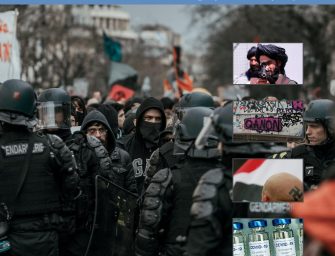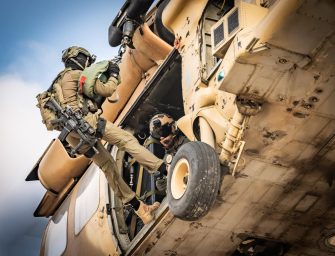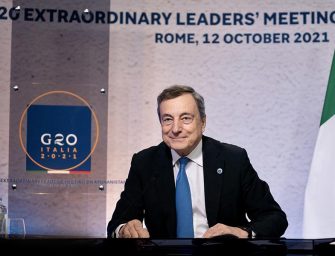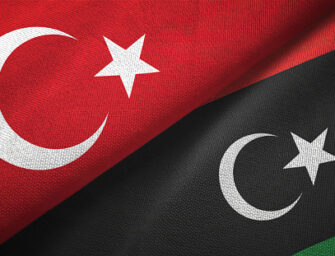The Turkish strategy in Libya: political advantage through Security Force Assistance
Libya: consequences of the Libya-Turkey joint military collaboration
by Claudio Bertolotti
On 15th September, the UN Security Council tasked Secretary-General Antonio Guterres with appointing a special envoy to broker peace in Libya. Meanwhile, Russia and China abstained from voting on the resolution which would also extend the UN mission in the country.
The following day (16th September) the Prime Minister of Libya’s Government of National Accord (GNA), Fayez al-Sarraj, announced his intention to step down, prompting a flurry of speculations about his reasons for doing so. Many believe that Sarraj’s decision was brought about by strong international pressure – particularly by the US – with the intent of appeasing international parties disturbed by the agreements he signed with Turkey, specifically the maritime border demarcation agreement (exclusive economic zone – EEZ) which angered Europeans in general, and France and Greece in particular. Following the agreement and with Turkey’s help, the internationally-recognized premier, whose government controls only parts of western Libya, was able to quash last June a year-long offensive on the capital by eastern commander Khalifa Haftar.
This is a political evolution with serious strategic consequences, despite the fact that up to now, Libya remains divided into two main fronts (Tripoli on the one hand, Tobruk on the other), where multiple actors are pursuing their differing agendas. Ankara’s relations with Tripoli could be seriously affected by the above-mentioned resignation, should it ever materialize, as Turkish and Qatari Defense Ministers signed a deal on 17th August, aimed at providing assistance in restructuring the military in the country. The Government of National Accord of Libya (GNA) and Turkey already started implementing a series of programs to reconstruct the military in the war-torn country: the news was announced by Defense Minister Salah Eddine al-Namrush on 20th September.
The programs, which officially aim to establish a military force in line with international standards, include the restructuring of the armed forces, air defenses, counter-terrorism units, special operations’ units and the navy. Turkish military advisers are expected to provide training and logistical assistance in cooperation with Qatar, in order to re-establish a regular army in Libya.
Turkish military will provide assistance in restructuring the irregular and informal cluster of militias which now constitutes the Libyan Army, turning it into a regular army based on the model used for training the Azerbaijani Army
According to “Daily Sabah” (20th September, 2020) the Turkish military will provide assistance during a transition phase which is expected to lead -through a disarmament, demobilisation and reintegration (DDR) process- to the transformation of the irregular and informal cluster of militias which is now the Libyan Army, into a regular army based on the model that was used when Turkish forces provided training and assistance to their Azerbaijani counterparts. Turkish air force pilots also provided training, and the Azerbaijani military received technical equipment support from Turkey. The process launched by Turkey and Qatar in Libya aims at ‘standardizing’ training and recruitment (“Daily Sabah”, 2020).
So on the one hand, Ankara supports the GNA by means of a Security Force Assistance (SFA) mission, formally implemented through bilateral agreements with Tripoli; the mission includes military equipment and weapons’ supply which Ankara send to Tripoli in violation of the UN arms embargo – imposed by the United Nations Security Council Resolutions (UNSCR) 1970 (2011), 2292 (2016) and 2473 (2019) –; it also exposes the shortcomings of EUNAVFORMED “Irini” mission, which is supposed to prevent weapons’ supply to Libya (Bertolotti, 2020). Turkey’s deployment of military personnel goes hand in hand with the supply of at least 10 types of military equipment consisting of: electronic warfare systems, anti-tank guided missiles, combat drones, self-propelled air defense guns and artillery, surface-to-air missile systems, frigates and fighter ground attack aircraft (Lederer, 2020).
On the other hand, and this represents the most critical aspect, several sources ascertained the presence of Syrian mercenaries sent by Turkey to Libya to fight on the GNA side, consisting in at least 5,000 Syrian fighters, partly belonging to the so-called Syrian “Hamza Division” as well as the extremist “Sultan Murad” group (which is among the Turkish-backed insurgent groups which volunteered to send fighters to Libya); these fighters, who operated with Ankara in Syria’s war, were then sent to help Tripoli-allied militias fight the so-called “Libyan National Army” (LNA) led by the east-based military commander Khalifa Haftar (Magdy, 2020), and were provided with Fnss Acv-15 armoured vehicles, Milkor Mgl grenade-launchers, and US Bgm-71 Tow anti-tank missiles. This presence is likely to decrease security and generate a strong and adverse reaction from the Libyan population. The GNA is probably aware of that and it therefore facilitated the relocation of these jihadi Syrian mercenaries to Azerbaijan, where hostilities against Armenia are on the increase, as well as Turkey’s ambitions.
Focussing on the opposite front, the United Arab Emirates (UAE), Egypt and Russia military support to the LNA is all but marginal.
The UAE deployed military personnel and supplied at least five types of military equipment to Libya, including armored personnel carriers, patrol vehicles and a French Dassault Mirage 2000-9 jet fighter (Lederer, 2020).
Russia transferred at least two types of military equipment into Libya, namely a Mig-29A fighter jet operating from the al-Jufra airbase and a Sukhoi SU-24 supersonic attack aircraft operating from both al-Jufra and al-Khadim airbases, as well as “a main battle tank upgrade” for an unidentified Russian private military company (Lederer, 2020); as the Russian government does not officially acknowledge the mercenaries’ existence, it can deny or play down any Russian casualties while maintaining a military presence in the country. The Wagner group is thought to have transferred “armed private military operatives and military equipment into Libya” to support Haftar’s military operations, including two armored personnel carriers. Wagner military operatives also took part in the withdrawal of Haftar’s forces from Bani Walid on 27th May and on 1st July; Wagner’s operatives were reported to be based at five airbases – al-Jufra, Brak, Ghardabiya, Sabha and Wadden – and at the Sharara oil facility, the country’s largest (Lederer, 2020). Wagner’s involvement in Libya consists in the deployment of 800 to 1,000 personnel since October 2018 and in providing technical support for repair of military vehicles and participation in combat operations (BBC, 2020). Its members have been active as artillery and air observers, as well as in “providing electronic countermeasures expertise and deploying as sniper teams”. The personnel were mainly Russian, but there were also nationals of Belarus, Moldova, Serbia and Ukraine (Lederer, 2020; BBC, 2020).
The 10 other companies accused of violating the arms embargo by providing logistical support to Haftar’s forces include airlines from Kazakhstan, Syria, Ukraine and Tajikistan and two UAE companies (Lederer, 2020).
The resupply of both sides by air was extensive, with flights from the UAE to western Egypt and eastern Libya, and from Russia via Syria to eastern Libya to reinforce the LNA – and from Turkey to western Libya to reinforce the GNA (Lederer, 2020). As for shipments by sea, five vessels destined for government ports flying flags of Albania, Lebanon, Tanzania and Panama were in “non-compliance” with the arms embargo, along with two, destined for Haftar’s eastern ports. One vessel flying a Liberian flag has a UAE owner and the other, flying a Bahamas flag, has a Japanese owner (Lederer, 2020).








